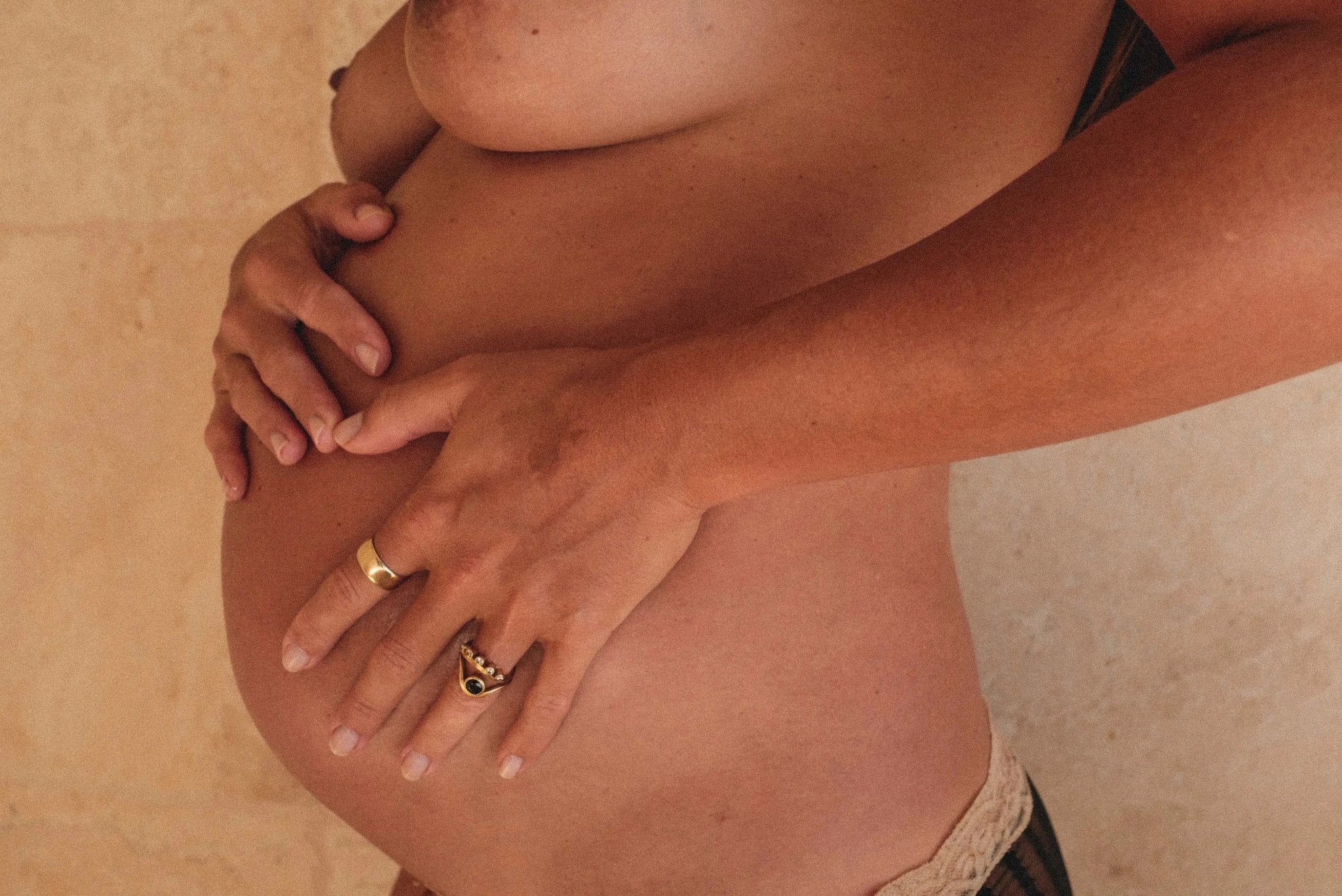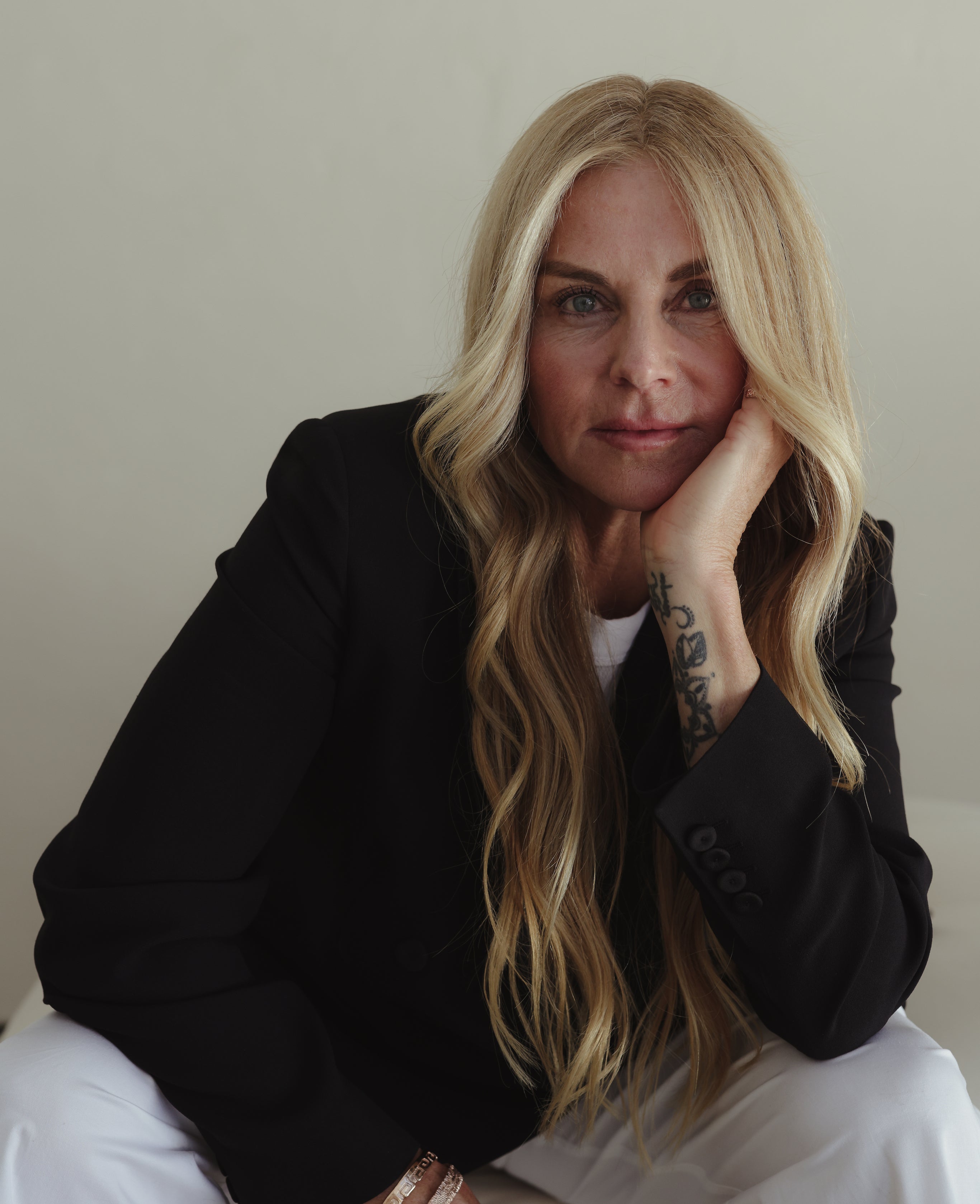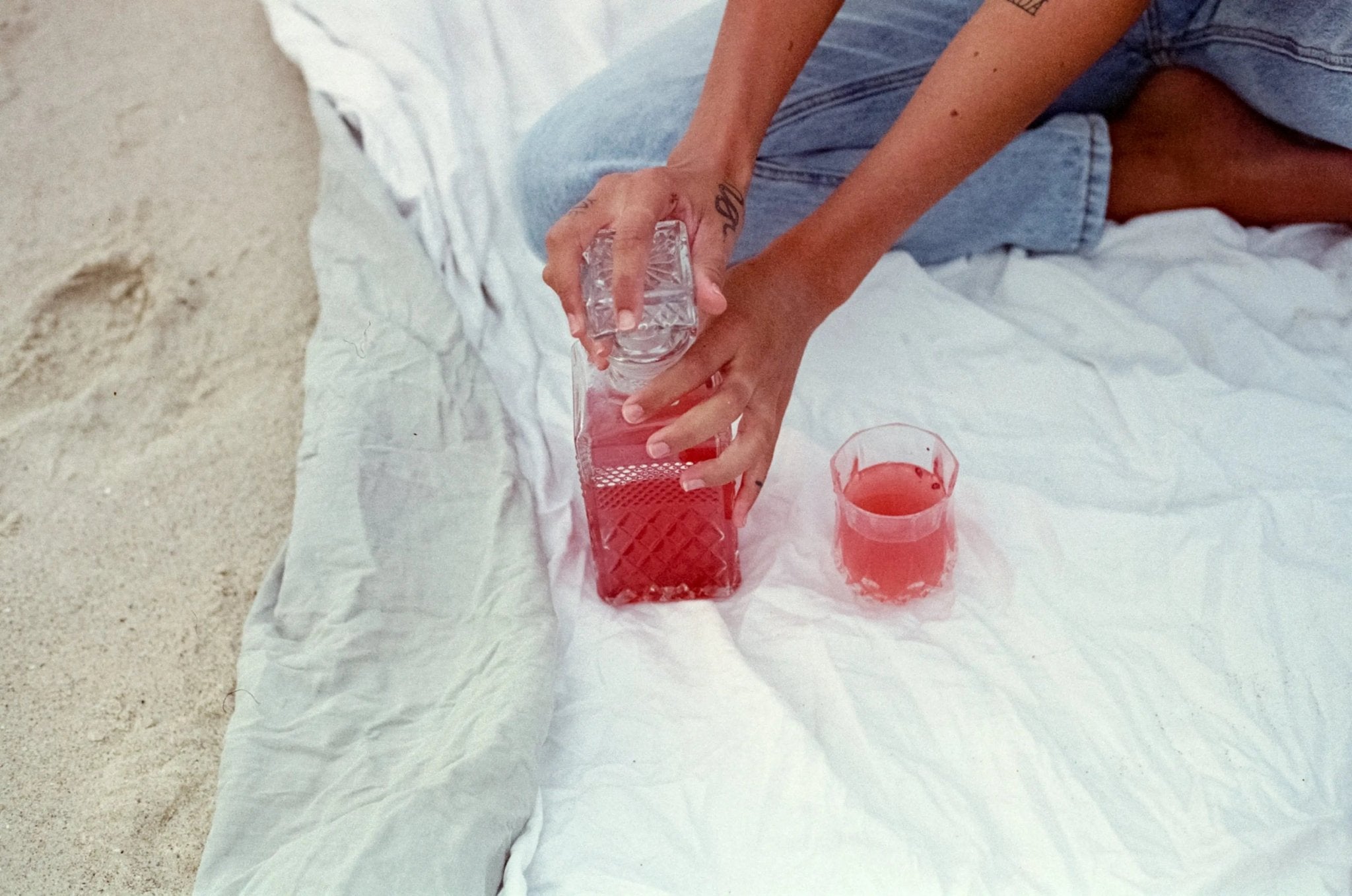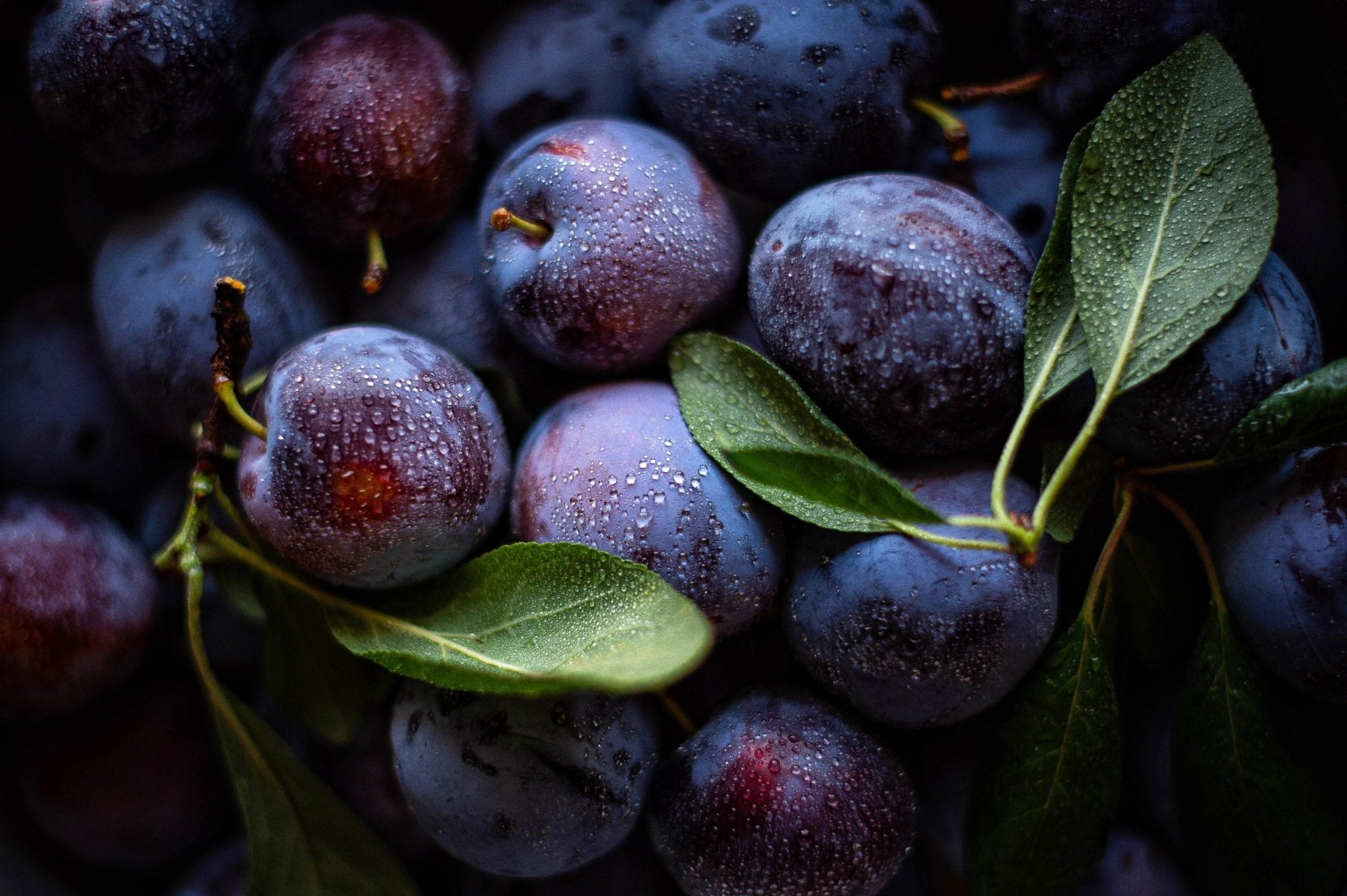
8 Chemicals to Avoid During Pregnancy
Many women turn to certified organic products for the first time when they fall pregnant. The sheer number of chemicals to avoid during pregnancy can be overwhelming, particularly in cosmetics and skincare products.
By choosing certified organic products, you will be minimising exposure to potentially harmful chemicals to your skin, hair or nails, or inhaling any toxic fumes.
Studies show that some chemicals applied to the skin or inhaled have the potential to enter the bloodstream and can cross the placenta. So if you're contemplating pregnancy, currently pregnant or even breastfeeding, it is recommended to avoid the following ingredients:
1. RETINOIC ACID
This is a type of retinoid (also called tretinoin, Retin-A or Atralin).
Tretinoin cream is often prescribed by doctors to treat acne, age spots and wrinkles. There is a long list of potential side effects from using tretinoin creams.
Isotretinoin (Amnesteem, Claravis, others), an oral prescription medication for severe acne, has been implicated in birth defects and should never be used during pregnancy.
The EWG Cosmetics Database states that certain retinoids have been banned or found unsafe for use in cosmetics, they are toxic to organs and are also an environmental toxin. Retinoids are also found in some makeup brands, so look for certified organic makeup if you want to avoid them altogether.
Our upgraded Vital A Elixir, however, is formulated with a 100% botanical-based retinal that is extremely gentle, and safe for use during pregnancy and breast-feeding.
2. SALICYLIC ACID
Salicylic acid is a naturally occurring and synthetically produced beta hydroxy acid used in skin treatment products for acne, warts and calluses. It’s also used in anti-dandruff products, in hair and skin conditioning products and in makeup, and as a preservative.
High doses of salicylic acid have been shown to cause birth defects and various pregnancy complications, however some doctors and skincare companies that use salicylic acid in their products say it’s safe to use topically when pregnant.
There are no studies to show that small amounts of salicylic acid used on the skin – say when it’s used as a preservative in a facial moisturiser – will harm an unborn baby. I would caution against slathering your whole body in a product that is very high in salicylic acid if pregnant, but otherwise, it’s fine.
3. CHEMICAL SUNSCREENS
Look for natural, nanoparticle-free sunscreens when you're pregnant. For your face, our Daily Moisturiser with Sunscreen is a safe choice. The active sunscreen is derived from zinc oxide. Expectant mums should also avoid sunscreens containing oxybenzone. Other sunscreen chemicals to avoid during pregnancy (and in general) are avobenzone, dioxybenzone, benzophenone, octyl methoxycinnamate (OMC), para-aminobenzoic acid (PABA) and octocrylene.
4. PERFUMES, SKINCARE PRODUCTS OR COSMETICS CONTAINING PARABENS, PHTHALATES AND BPA
Phthalates, parabens and BPA are all ‘xenoestrogens’, which may act like estrogenic hormones in the body and are definitely chemicals to avoid during pregnancy. They should particularly be avoided when the reproductive system is still maturing, e.g. newborns, children and prepubescent teens.
Look for these names on your skincare product’s ingredients list: methylparaben, ethylparaben, propylparaben and butylparaben. Several phthalates have been banned for use in cosmetics in Australia: dibutylphthalate, diethylhexylphthalate, diisobutylphthalate and di(methyloxyhexyl)phthalate.
5. NAIL POLISH
Some nail polishes contain toluene, which has been linked with short-term neurological effects such as dizziness, hallucinations and headaches and there are concerns that high concentrations could affect a developing foetus during pregnancy. There are some great natural nail polish ranges available that are toluene-free, so opt for those.
Formaldehyde is another nail polish ingredient you need to steer clear of, not just when you're pregnant. It's a preservative that can irritate skin, eyes, nose and the respiratory tract, and can cause cancer when exposure levels are high.
Also look for phthalate-free nail polish – while nail polish chemicals don't penetrate your nails and enter your bloodstream, the issue is more with inhaling the chemicals while you're applying it, so always apply nail polish in a well-ventilated area.
6. SELF-TANNERS
It's estimated only 0.5 percent of dihydroxyacetone (DHA), the active ingredient in self-tanners that makes skin darker, passes into the maternal blood stream during application. However, it's not known whether it crosses the placenta. Avoid self-tanners unless they are naturally derived while pregnant, especially spray-tanning salons as there's a higher risk of inhalation, which could allow DHA to enter your bloodstream.
7. TEETH-WHITENING PRODUCTS
Not much is known about the effects of teeth-whitening products, such as peroxide, so it's wise to avoid them while you're pregnant. Opt for a natural toothpaste and if you want to whiten your teeth, try making your own turmeric teeth-whitening paste. Just mix 4 tablespoons of turmeric powder, 2 tablespoons of baking soda and half a tablespoon of coconut oil. Brush your teeth with the paste for 2 to 3 minutes, then rinse.
8. HAIR DYE
As a conservative measure, it's best to avoid dyeing your hair during the first trimester, when the baby is most vulnerable. After that, it's okay to highlight or dye your hair but keep it off your scalp and rinse immediately. Avoid any dyes or hair treatments with ammonia, because the fumes could make you nauseous. Darker hair dyes are considered more toxic than lighter colours.




Leave a comment
This site is protected by hCaptcha and the hCaptcha Privacy Policy and Terms of Service apply.